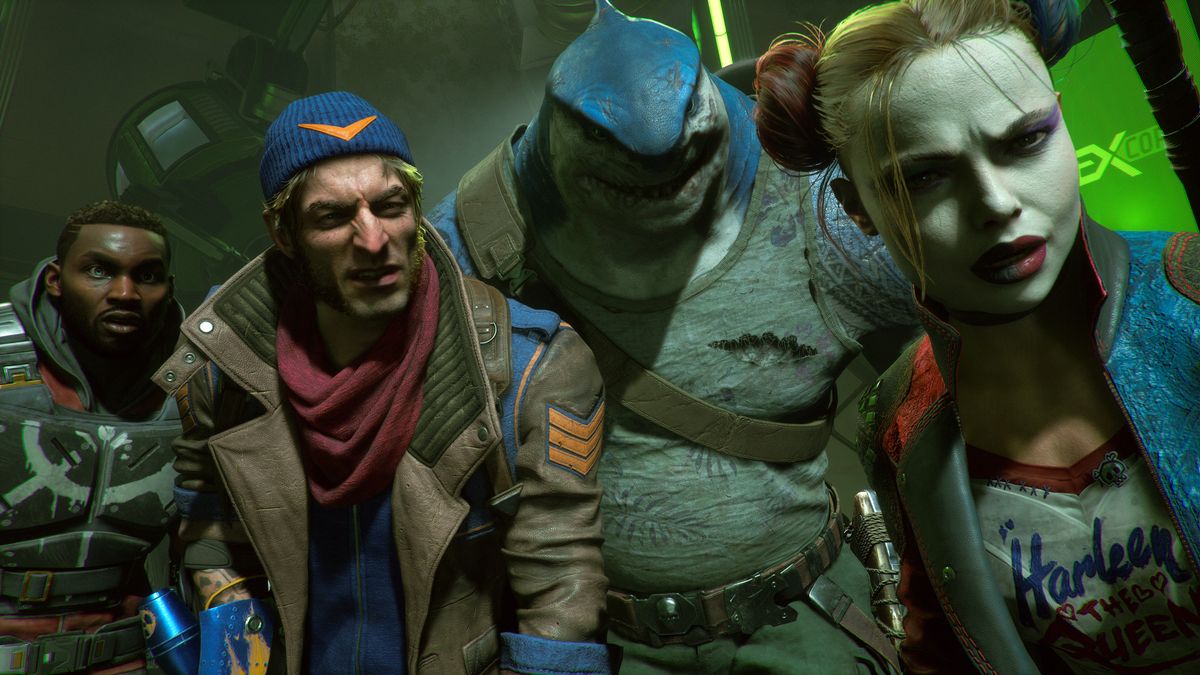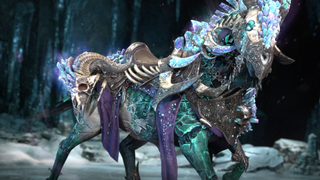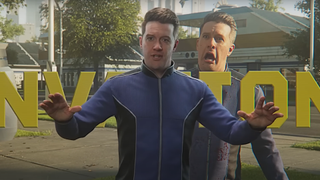A variation of “It's OK if it's just cosmetic” has been the motto of many live service games and MMORPGs, especially in recent years – and OK. If you look at the balance of a game purely in terms of numbers, that is absolutely correct.
It's an old gaming wisdom that any full-price game where the direct power is behind a credit card will be banished to the darkest pits of Hades and banished to purgatory forever (that's right, check your stone tablets, they came free with your Steam account). account delivered). Completely free-to-play games do have some disappointment here, but they still find it hard to push their luck.
The solution of limiting microtransactions to purely cosmetic items seems, at first glance, to be a good way out. Pay-to-win is heresy, but pay-to-look good? Anyway, who cares? If someone in simple clothes can still fool the most dripping players, then all is well in love and war.
So why does it still bother us? I'm using the royal “us” here, but given the general grumbling I've seen about things like the Diablo 4 horse, which you can't buy without spending an extra $60 in premium currency, a Final Fantasy 14 cosmetic , which you can mostly buy – recreate in-game, and – well, Suicide Squad: Kill the Justice league, it's clear we're all a little tired of cash gate clothing.
Marketing malaise
Marketing is all about psychology. As I mentioned with Diablo 4, many of the techniques developers use to get you to buy it have a cozy place in research aimed at tricking the human brain – and by that I mean well-funded, highly scientific research .
Stop me if you've heard this before: A game contains cosmetics locked behind a premium currency. However, you can only purchase this currency in batches. These batches are either too small to buy you one skin, but not large enough to buy you two.
You don't need to know what “price anchoring” is to know that staring at a horse that has a mandatory $60 purchase strapped to its side sucks.
That's upselling (probably too). forced Upselling) and has always been used in stores and advertising. For the same reason, every takeout app asks if you want to pay way too much for extra pickles on your burger, although I suspect in that case you'll still get the burger.
These techniques are used because they're lucrative as hell, but they also corrupt our relationship with games because the more you're exposed to them, the more you start to see through them and the more jaded you become. Even if you lack the vocabulary to express why. You don't have to know what”Price anchoring“It's knowing that staring at a horse with a mandatory $60 purchase strapped to its side sucks.
To make a comparison, there is a particular soap and cosmetics chain here in the UK which I will not name as a matter of courtesy. In this chain, salespeople—who simply do what they're told—are encouraged to approach you, chat with you, and recommend larger purchases.
I can not endure this. Not because I don't like talking to strangers, but because I find it impossible to make any decision when I'm being stared at. But in the real world, you can just choose not to go to the store without missing out on much. Because marketing is directly related to the soap purchase you are there for.
However, when it comes to games, the ads we are ambushed with don't really have anything to do with what we were there to play. If a cash shop stops me from playing a game, it not only affects my purchasing decisions, it also disrupts the hobby I've already spent money on. Even the mere cash shop button in a full-price game bothers me, let alone pop-up ads. Marketing is undoubtedly the background radiation of our society today – and it is unavoidable. But do you want it in your escape time? Not really.
But let's assume these things are appropriately hidden in completely optional corners. You need to specifically search for cashless cosmetics on a website. Is there still a problem?
Yes, somehow
Helldivers 2 offers paid cosmetics such as capes, emotes and helmets. However, as the developers have explicitly stated before, it is not a game that is trying to rip you off. That still needs to happen a bit, because unfortunately that's just how games work these days, but as we've pointed out in the past, there isn't much pressure to spend money.
That's because you can get Premium War Bonds just by playing the game, as you can collect enough Super Credits with a little elbow grease. If you want shiny goodies (and some real weapons), you have a difficult task ahead of you, but not a hurdle.
I want to emphasize that much of this is not aimed at free-to-play games – at least not exclusively.
But Helldivers 2 is a bit of an outlier. Most full-price live service games (and some single-player games) exclude certain cosmetics behind cash entirely. That shouldn't be a problem either – the goal of a game is to win, and a cool new suit isn't enough, right? However, I think we still do lose Something when a cosmetic product is banished to the cash shop dungeon.
Anyone who has played an MMORPG will tell you that fashion is a huge part of the end game. Outfits and clothing are actually extremely motivating rewards for most players. Heck, an entire stage of Final Fantasy 14's endgame, Ultimate Raids, actually just gives you a shiny weapon skin when you beat them – and it works. Players spend months learning these fights just to have bragging rights.
Every time you lock a game's reward behind a paywall, you are degrading part of your reward structure. Think of how many times you've found that the only affordable freemium cosmetics in a game are pretty ugly recolors of your current skins – and think of how much wind that took out of your sails. It's not a motivation to grind, but a motivation to buy.
I want to emphasize that much of this is not aimed at free-to-play games – at least not exclusively. While aggressive monetization tends to weaken my enthusiasm for these games over time (I could never mess around with gacha), that's more of a subjective dislike than a black mark, especially when you get a ton of game time for free.
The increasing budgets and demand for long revenue have created a world where every game has a slightly worse reward structure, and it's all our own (consumers, publishers and society) fault.
But the annoying truth is that many full-price games, especially those with multiplayer elements, Do You have to make money to keep the lights on. The increasing budgets and demand for long revenue have created a world where every game has a slightly worse reward structure, and it's all our own (consumers, publishers and society) fault.
While I think Helldivers 2 does it well and should be the model for the future, its grind is probably still slower than it would otherwise be. The ever-present specter of industry health and shareholder satisfaction means we're kind of stuck here for the future – but one thing's for sure: I don't think it's just cosmetic! cuts it, more.






